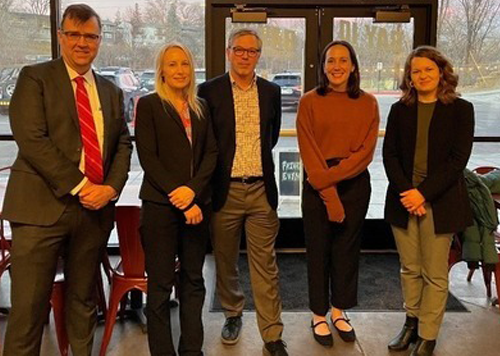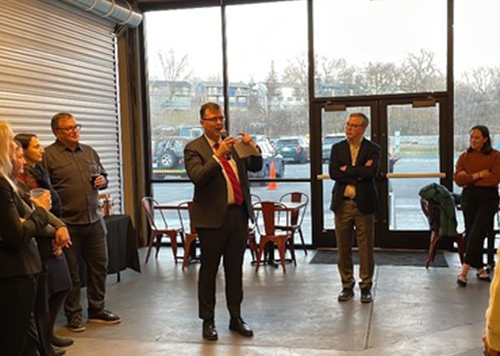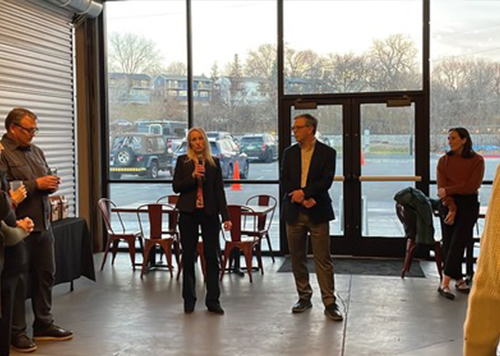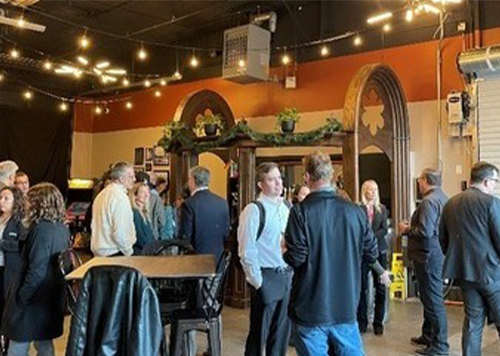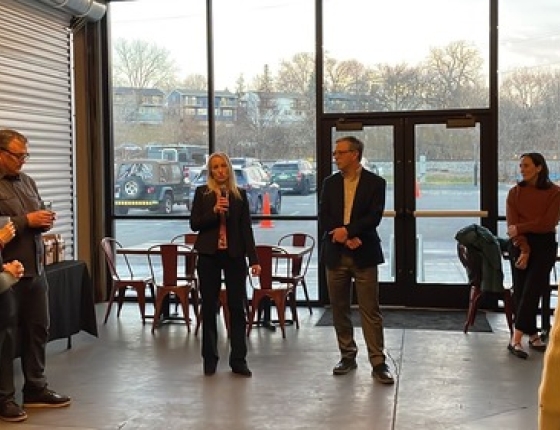In September 2022, Governor Tim Walz released Minnesota’s first Climate Action Framework, a comprehensive plan for how the state can adapt to a changing climate and mitigate its effects. A crucial part of this plan is the bold goal for the State’s commercial energy code to reach net zero by 2036. In response to this goal, The Minnesota Advanced Energy Codes Partnership was formed.
Led by CEE, the partnership is sponsored jointly by the State's departments of Labor and Industry and Commerce, with financial and technical support from the U.S. Department of Energy, the participation of the University of Minnesota’s Center for Sustainable Building Research, and a broad-based Advisory Council including Tribal Nations and unions.
The partnership has committed to several shared goals:
-
Establish and implement a path to net-zero codes by 2036.
-
Improve commercial code compliance outcomes.
-
Develop the workforce for next generation buildings.
-
Develop existing buildings strategies, including building performance standards.
-
Provide benefits for Minnesotans, especially in disadvantaged communities.
Partners gathered in early December to celebrate the effort's launch, and with it, a new era for building efficiency in Minnesota.
“Getting to net-zero is going to require a lot of people working together,” said Carl Nelson, Senior Director of Market Transformation at CEE. “It’s going to require the construction industry to develop new practices and put in new technologies, our code officials to be able to enforce new codes, and our workforce to be able to install these new technologies.”
The partnership supports the state’s goal of an 80% efficiency improvement in energy code by 2036, one of the most aggressive in the country and the boldest among cold-weather states.
Kate Perushek, Deputy Commissioner of the Department of Labor and Industry (the agency in charge of energy codes) also spoke at the gathering, explaining, “An improved statewide commercial energy code will lower greenhouse gas emissions from new commercial and multi-family buildings and create healthier communities statewide. This funding opportunity will help us provide the compliance support needed to achieve in practice the energy efficiency improvements we have on paper.”
“The building sector is a huge challenge particularly in this climate,” added Pete Wykcoff, Assistant Commissioner at the Minnesota Department of Commerce. “If we can make this work in Minnesota, no one else has an excuse.”
These initiatives signal a change for the construction industry in Minnesota as the state adopts codes tighter than national standards. “Codes are really starting to advance in ways we haven’t seen before,” said U.S. Department of Energy representative Nicole Westfall. “Through great partnerships like this, we are able to work together to make these things commonplace and change the way we construct and think about our buildings, which will have impacts for many years to come.”
